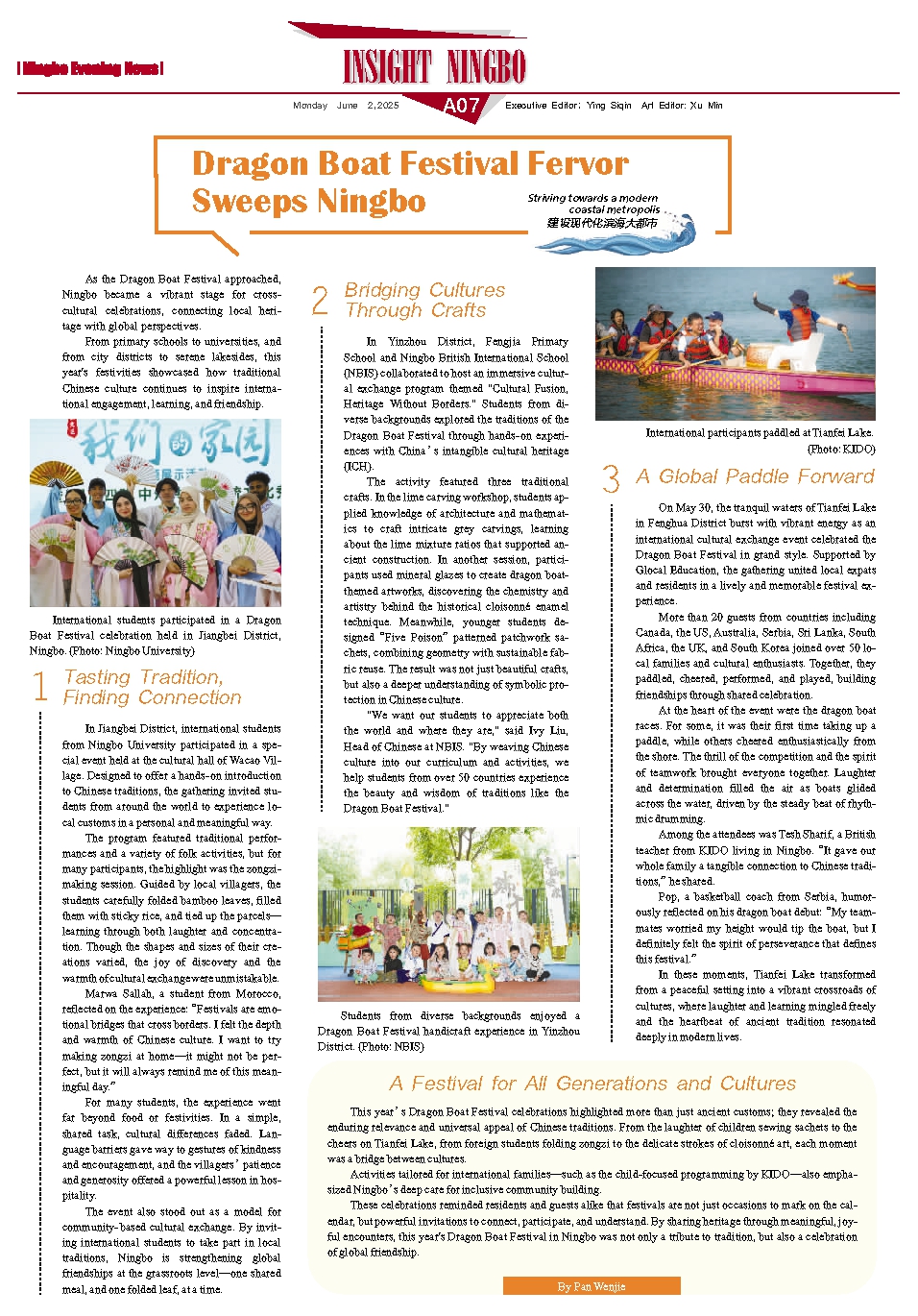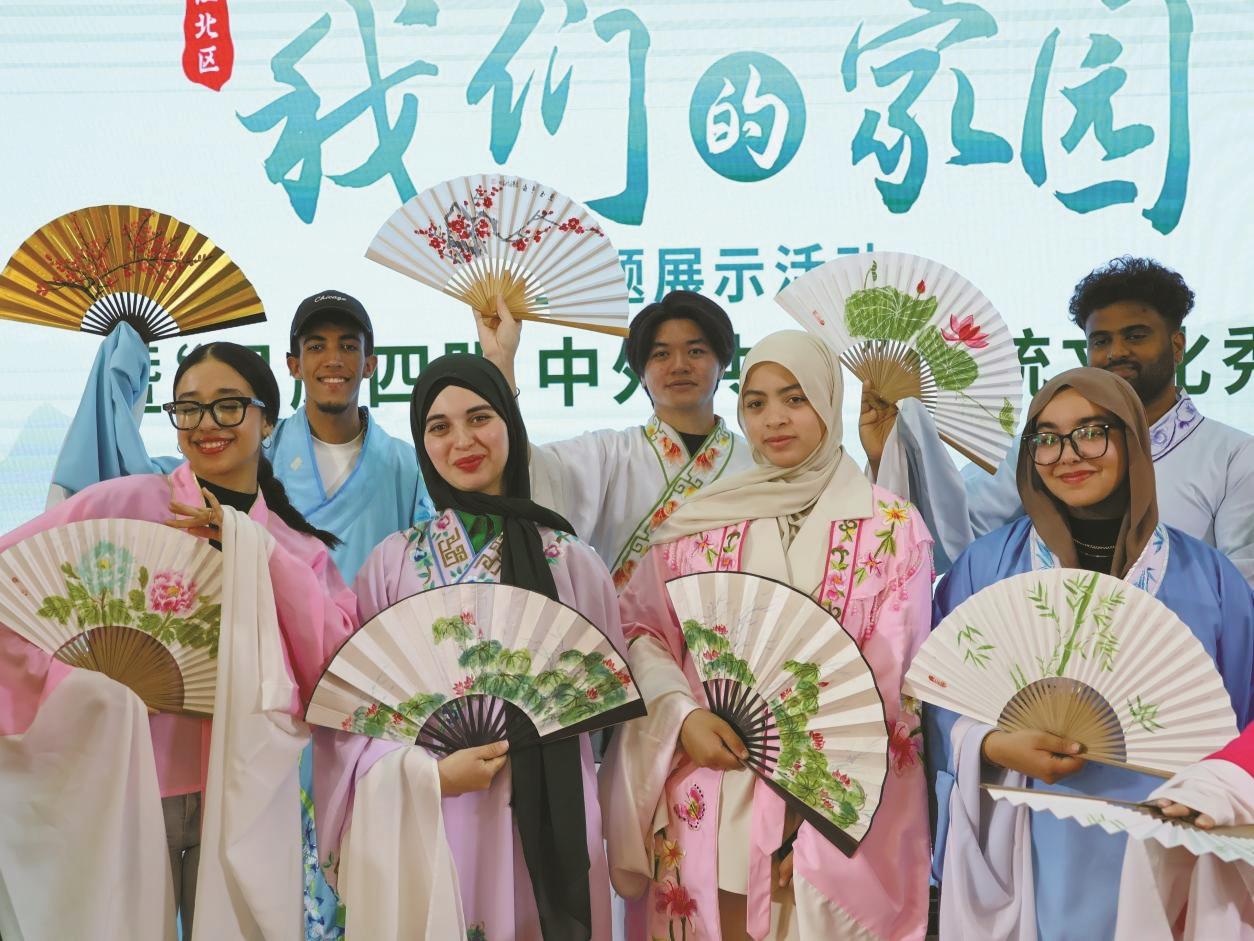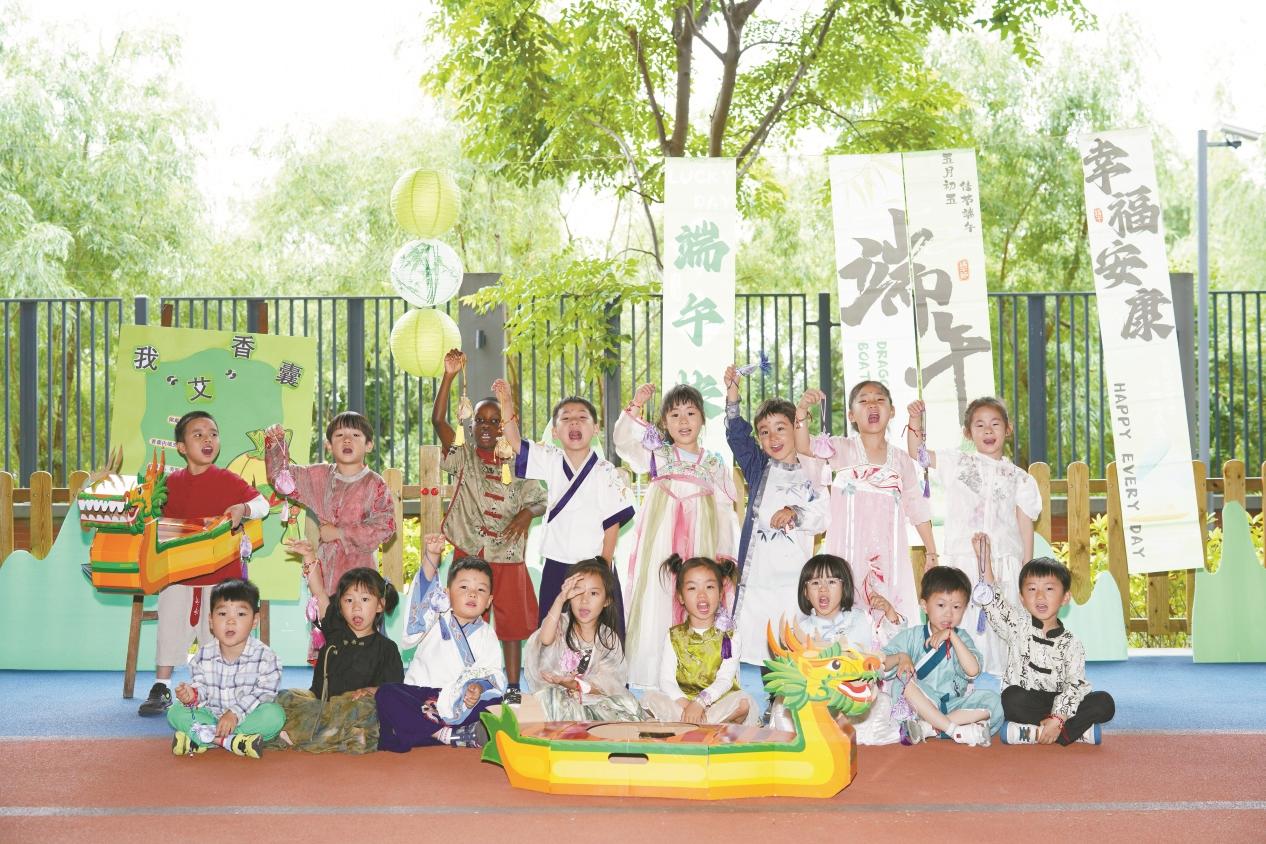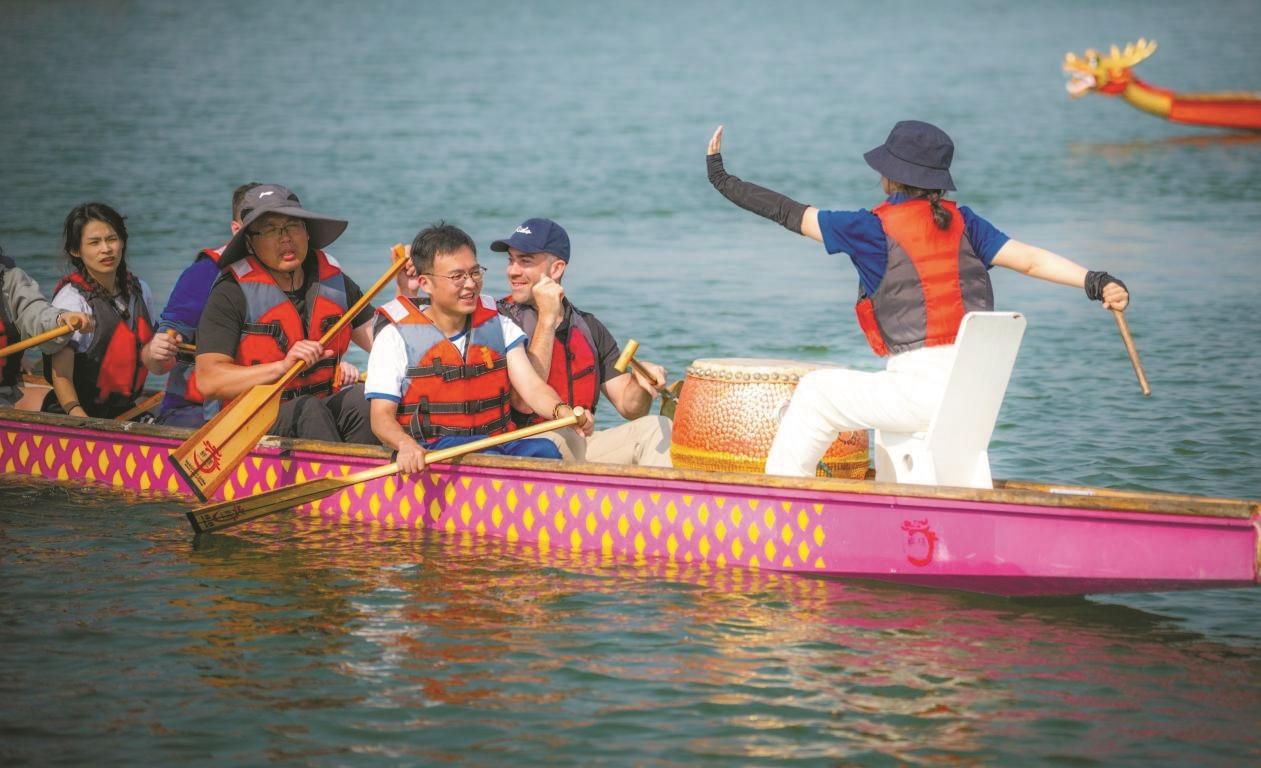As the Dragon Boat Festival approached, Ningbo became a vibrant stage for cross-cultural celebrations, connecting local heritage with global perspectives.
From primary schools to universities, and from city districts to serene lakesides, this year's festivities showcased how traditional Chinese culture continues to inspire international engagement, learning, and friendship.
Tasting Tradition,
Finding Connection
In Jiangbei District, international students from Ningbo University participated in a special event held at the cultural hall of Wacao Village. Designed to offer a hands-on introduction to Chinese traditions, the gathering invited students from around the world to experience local customs in a personal and meaningful way.
The program featured traditional performances and a variety of folk activities, but for many participants, the highlight was the zongzi-making session. Guided by local villagers, the students carefully folded bamboo leaves, filled them with sticky rice, and tied up the parcels—learning through both laughter and concentration. Though the shapes and sizes of their creations varied, the joy of discovery and the warmth of cultural exchange were unmistakable.
Marwa Sallah, a student from Morocco, reflected on the experience: “Festivals are emotional bridges that cross borders. I felt the depth and warmth of Chinese culture. I want to try making zongzi at home—it might not be perfect, but it will always remind me of this meaningful day.”
For many students, the experience went far beyond food or festivities. In a simple, shared task, cultural differences faded. Language barriers gave way to gestures of kindness and encouragement, and the villagers’ patience and generosity offered a powerful lesson in hospitality.
The event also stood out as a model for community-based cultural exchange. By inviting international students to take part in local traditions, Ningbo is strengthening global friendships at the grassroots level—one shared meal, and one folded leaf, at a time.
Bridging Cultures
Through Crafts
In Yinzhou District, Fengjia Primary School and Ningbo British International School (NBIS) collaborated to host an immersive cultural exchange program themed "Cultural Fusion, Heritage Without Borders." Students from diverse backgrounds explored the traditions of the Dragon Boat Festival through hands-on experiences with China’s intangible cultural heritage (ICH).
The activity featured three traditional crafts. In the lime carving workshop, students applied knowledge of architecture and mathematics to craft intricate grey carvings, learning about the lime mixture ratios that supported ancient construction. In another session, participants used mineral glazes to create dragon boat-themed artworks, discovering the chemistry and artistry behind the historical cloisonné enamel technique. Meanwhile, younger students designed “Five Poison” patterned patchwork sachets, combining geometry with sustainable fabric reuse. The result was not just beautiful crafts, but also a deeper understanding of symbolic protection in Chinese culture.
"We want our students to appreciate both the world and where they are," said Ivy Liu, Head of Chinese at NBIS. "By weaving Chinese culture into our curriculum and activities, we help students from over 50 countries experience the beauty and wisdom of traditions like the Dragon Boat Festival."
A Global Paddle Forward
On May 30, the tranquil waters of Tianfei Lake in Fenghua District burst with vibrant energy as an international cultural exchange event celebrated the Dragon Boat Festival in grand style. Supported by Glocal Education, the gathering united local expats and residents in a lively and memorable festival experience.
More than 20 guests from countries including Canada, the US, Australia, Serbia, Sri Lanka, South Africa, the UK, and South Korea joined over 50 local families and cultural enthusiasts. Together, they paddled, cheered, performed, and played, building friendships through shared celebration.
At the heart of the event were the dragon boat races. For some, it was their first time taking up a paddle, while others cheered enthusiastically from the shore. The thrill of the competition and the spirit of teamwork brought everyone together. Laughter and determination filled the air as boats glided across the water, driven by the steady beat of rhythmic drumming.
Among the attendees was Tesh Sharif, a British teacher from KIDO living in Ningbo. “It gave our whole family a tangible connection to Chinese traditions,” he shared.
Pop, a basketball coach from Serbia, humorously reflected on his dragon boat debut: “My teammates worried my height would tip the boat, but I definitely felt the spirit of perseverance that defines this festival.”
In these moments, Tianfei Lake transformed from a peaceful setting into a vibrant crossroads of cultures, where laughter and learning mingled freely and the heartbeat of ancient tradition resonated deeply in modern lives.
A Festival for All Generations and Cultures
This year’s Dragon Boat Festival celebrations highlighted more than just ancient customs; they revealed the enduring relevance and universal appeal of Chinese traditions. From the laughter of children sewing sachets to the cheers on Tianfei Lake, from foreign students folding zongzi to the delicate strokes of cloisonné art, each moment was a bridge between cultures.
Activities tailored for international families—such as the child-focused programming by KIDO—also emphasized Ningbo’s deep care for inclusive community building.
These celebrations reminded residents and guests alike that festivals are not just occasions to mark on the calendar, but powerful invitations to connect, participate, and understand. By sharing heritage through meaningful, joyful encounters, this year's Dragon Boat Festival in Ningbo was not only a tribute to tradition, but also a celebration of global friendship.
By Pan Wenjie





